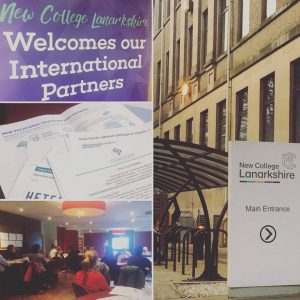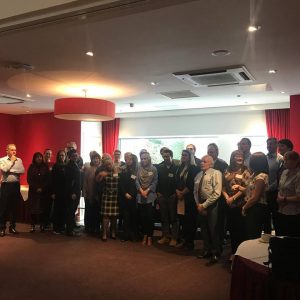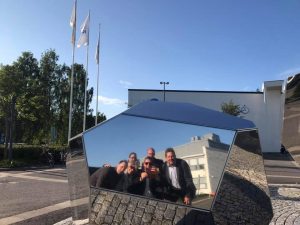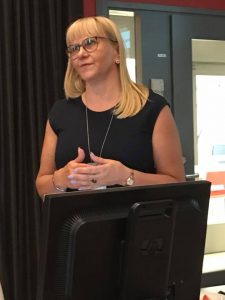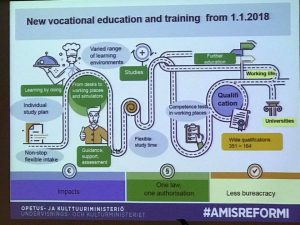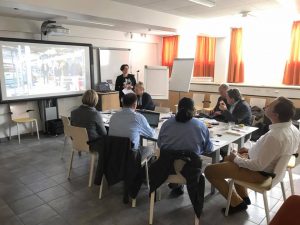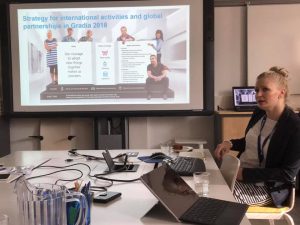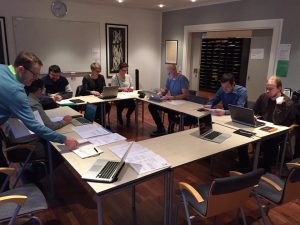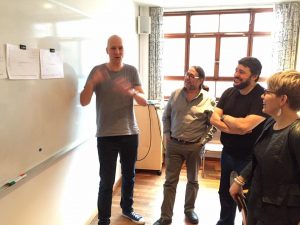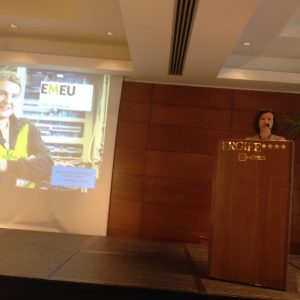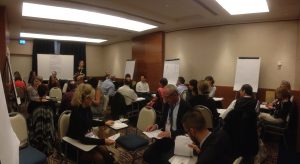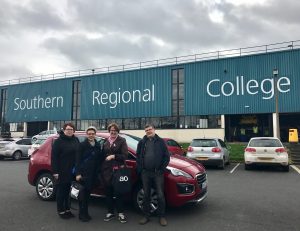
Money is tight and in all our development work the motto is “more for less” – there is an increased need to find new, efficient ways in organizing VET provision with the help of ICT and learning technology and all supportive services around them.
VET qualifications in Finland are fully competence based and in no way linked to any input elements anymore. With the exception of comprehensive school leavers for whom there is a targeted, national joint application process, also intake is now more or less non-stop which means that new learners can start their studies basically every week. This also means that VET providers are required to make learning plans for each learner individually.
With the above in mind, a team of Jyväskylä Educational Consortium staff members – including Hanna Rajala, Chief Information Officer & Quality Manager, Jaana Virtanen, Learning Technology Expert, Vesa Pulkkinen, IT designer, specialized in student information systems and learning technology and Minna Ahokas, Programme Manager, guidance counselling, libraries – set out to investigate how our partners in Norther Ireland are using digital tools to improve and make their processes more effective. The visit took place at three of the six NI VET providers, all members also of The Network of Networks (NoN) led by The Dutch Alliance (TDA).
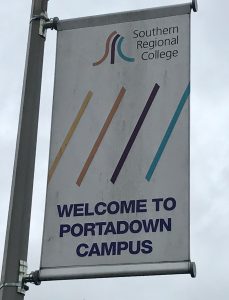
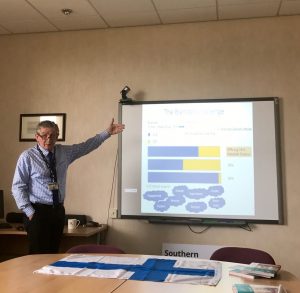
Keith Kilpatrick, Assistant Director for ILT Development and ILT Systems
The group had with them a long list of question such as
- How are ICT services organised; what is done internally, what is co-created with partners and what services, if any, are bought from a third party? Where client-software / cloud-software are used and what kind of support services are provided for college staff and (VET) learners?
- Virtual learning policies and strategies; what is the procedure, how are decisions on eLearning tools used/ supported made? How is the support for teachers organized so that they can efficiently use learning technology in their teaching? What kind of virtual learning tools are used and how and how is the use monitored?
- Guidance; how are guidance and career counselling processes organised? Who are responsible for various stages of guidance and career counselling (recruitment, student admission, guidance during and at the end of the studies? What kinds of digital or other tools are used in guidance?

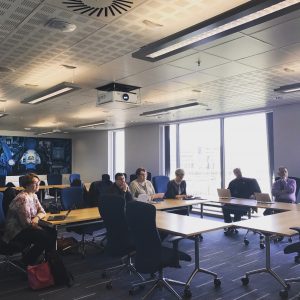
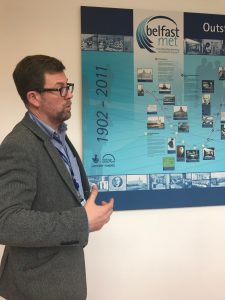
Glen McMahon, International Manger, Belfast MET
More often than not, we find out that there are more similarities than differences between our practices and those of our partners, and this is also the conclusion of this benchmarking visit. In some areas we are a little bit behind, in others perhaps a step or two ahead. Although all hosts, Southern Regional College, Belfast Metropolitan College and Northern Regional College are operating in a relatively similar context, they had all solved some of the issues in slightly different ways or started their implementation process from a slightly different angle. These contrasts made the 3-day visit very interesting and not repetitive in the least. Having said that, perhaps the most important outcome of the visit was the message of cooperation. Although all VET providers have their own processes and various things are created and provided for local use, they also benefit greatly from cooperation not just on regional but on national level as well.

The Northern Irish VET providers are all members of Jisc – the UK higher, further education and skills sectors’ not-for-profit organisation for digital services and solutions. Jisc champion the importance and potential of digital technologies for UK education and research; and do three main things: operate shared digital infrastructure and services, negotiate sector-wide deals with IT vendors and commercial publishers and provide trusted advice and practical assistance for universities, colleges and learning providers. The research and development work done by Jisc is integrated across these three areas.
A relatively cheap Jisc annual membership provides its members a significant advantage by pooling resources and sharing expertise nationally.
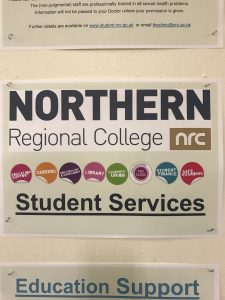
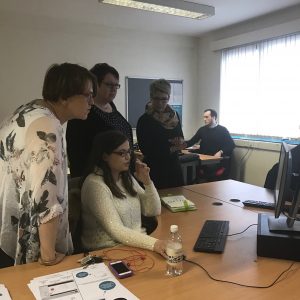
Discussions on this issue will continue at the Network of Networks Annual Meeting in the UK in September 2017.

Jaana Virtanen, Hanna Rajala, Damien Caldwell, Minna Ahokas, Vesa Pulkkinen and Irvine Abraham at NRC Ballymena campus.
The JEC team wishes to thank the hosts Southern Regional College, Belfast MET and Norther Regional College. Hopefully we can return the favour to you all sometime in the not too distant future!
